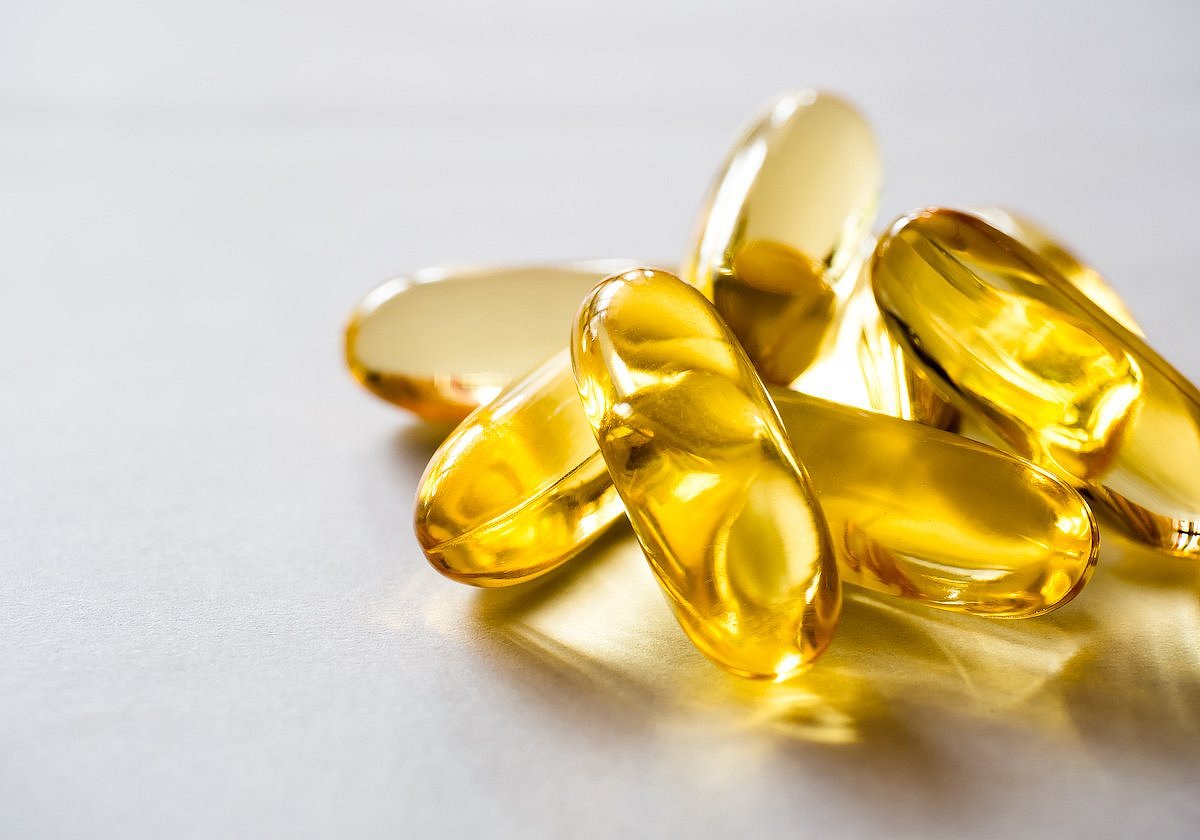Get Healthy!

- Posted September 24, 2025
Fish Oil May Raise or Lower Colon Cancer Risk, Depending on Your Genes
About 19 million U.S. adults take fish oil supplements, often to protect against chronic diseases. But new research suggests their ability to lower colon cancer risk may depend on a single gene.
Scientists at the University of Michigan and the University of Texas MD Anderson Cancer Center found that the gene 15-lipoxygenase-1 (ALOX15) is critical for omega-3 fatty acids in fish oil (EPA and DHA) to fight colon cancer.
The study — recently published in the journal Cellular and Molecular Gastroenterology and Hepatology — showed that without ALOX15, fish oil could actually raise the risk of colon tumors in mice.
“Not all fish oil supplements are the same,” senior researcher Imad Shureiqi, professor of internal medicine at the University of Michigan Rogel Cancer Center in Ann Arbor, said in a news release.
“It is also important to ask whether the person who is taking the supplement has the required enzymes to metabolize these products to prevent chronic inflammation and subsequently cancer development,” he added.
Researchers compared mice fed fish oil diets with mice on control diets. To their surprise, fish oil increased colon tumors in mice exposed to chemicals that cause inflammation and speed tumor formation.
That’s because the omega-3 fatty acids need ALOX15 to be broken down into anti-inflammatory molecules called resolvins, researchers explained. Chronic inflammation is a major factor in cancer.
The study showed:
Mice missing ALOX15 developed more colon tumors when given fish oil.
EPA seemed to work better than DHA, with fewer tumors seen in EPA-fed mice.
The type of supplement also mattered: Lovaza, an government-approved fish oil drug, and other EPA-based forms reduced tumor numbers and sizes in mice with ALOX15. But DHA products were less effective.
While results of animal studies often differ in humans, but these findings suggest fish oil may not protect everyone equally, especially folks without ALOX15.
The research team is working on drugs that could boost the presence of ALOX15 in cancer cells, making EPA and DHA supplements more effective at fighting cancer.
For now, experts recommend patients talk with their doctors before taking fish oil.
More information
The Mayo Clinic has more on fish oil.
SOURCE: Michigan Medicine - University of Michigan, news release, Sept. 23, 2025







